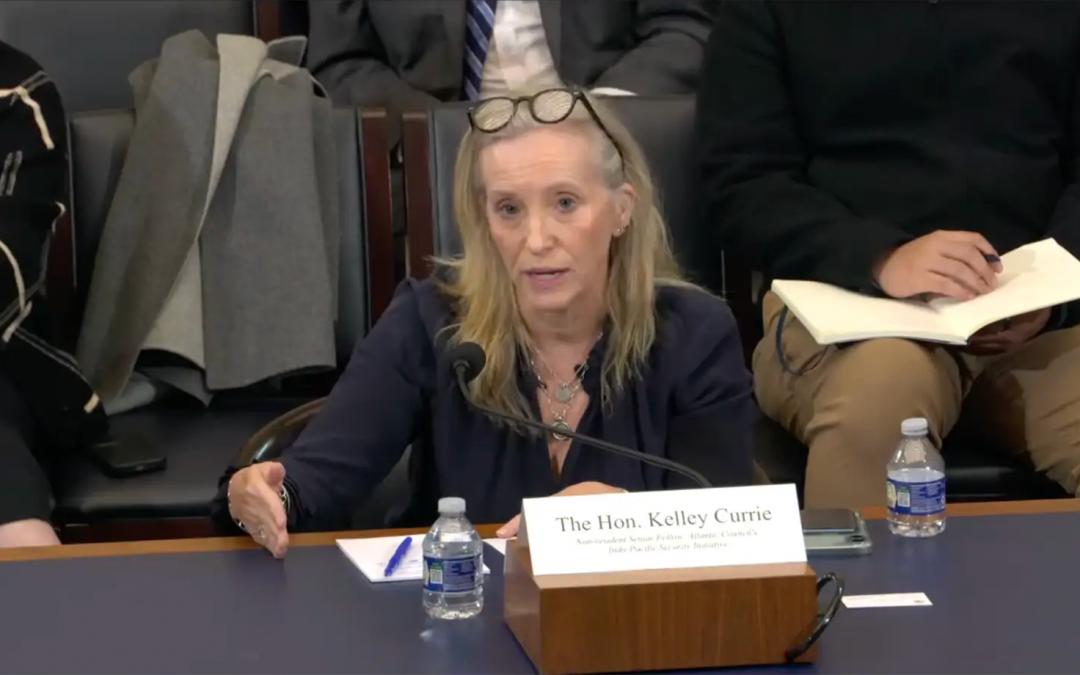WASHINGTON — Nearly five years after Myanmar’s military coup, the country remains in turmoil, with continued persecution of Rohingya Muslims, expanding scam centers targeting international victims and deepening Chinese influence. At a House Foreign Affairs Committee hearing Wednesday, lawmakers questioned witnesses on how Washington should engage with the country ahead of junta-run December elections widely seen as illegitimate.
“(Myanmar’s) humanitarian catastrophe, its strategic importance in Southeast Asia and the ongoing war’s harmful effects on everyday Americans — all demand a thorough reevaluation of the United States policy,” Committee Chair U.S. Rep. Young Kim (R-Calif.) said in her opening statement.
Witnesses included Kelley Currie, senior fellow at the Atlantic Council’s Indo-Pacific Security Initiative and former Ambassador-at-Large for global women’s issues. Currie repeatedly stressed China’s vested interest in supporting the Myanmar military in the ongoing conflict, citing its supply of weapons to the junta, cutting off resources to ethnic resistance groups and mining of the country’s rare-earth minerals.
Currie added that Chinese transnational criminal organizations form the backbone of scam centers based in Myanmar — rapidly growing, multibillion-dollar criminal networks that traffic people and defraud victims, including many in the U.S..
“There are a number of intersecting conflict economics that are fueling this war and the main beneficiary of these conflict economics and the war itself is not even the military junta — it’s the People’s Republic of China,” Currie said.
Currie urged placing targeted sanctions on the military junta, noting the U.S. rolled back several in July for “no apparent reason,” including those on a key arms dealer — a move sharply criticized by U.N. experts.
Steve Ross, senior fellow at the Stimson Center, underscored that the U.S. must refuse to recognize the results of the upcoming elections, arguing the outcome is predetermined after the junta dissolved the main political opposition parties in 2023.
“These so-called elections will not be free, fair, or inclusive,” Ross said. “Rather they are intended to garner international recognition for the regime in hopes that this will translate into political, financial and military support that enables it to consolidate control.”
Rep. Gabe Amo (D-R.I.) raised the topic of humanitarian aid, specifically the Trump administration’s decision to close USAID earlier this year, thus severely impacting assistance to Myanmar.
“Civilians are dying at the hands of (the Myanmar) military junta, but also from malnutrition and lack of medical care,” Amo said.
Rohingya refugee and activist Lucky Karim echoed Amo’s sentiments about the importance of U.S. aid to Myanmar, adding that it encourages other countries to contribute. She noted that after the closure of USAID, several other countries including the U.K. and Germany have also cut aid to Myanmar.
“The USAID cuts largely and more directly and personally have impacted the community members in the camps including nutrition, learning centers and other programs that are used to provide protections,” Karim said.
Rep. Scott Perry (R-Penn.) urged the committee members to focus on solutions that won’t “encumber taxpayers.” In response, Currie suggested moving frozen Myanmar foreign exchange reserves to a managing account and using the interest to support humanitarian and governance assistance, similar to how interest from frozen Russian assets is being used to support Ukraine.
Currie also suggested pushing countries like Thailand and Bangladesh, which host large Myanmar refugee populations, to authorize refugees to work, in an effort to make the communities more self-sustaining.
“Peace will only come to (Myanmar) when the people of that country are allowed to drive their own future without the interference of their big neighbor China and without the military creating the enabling environment for conflict,” Currie said.

